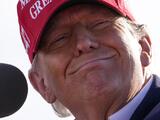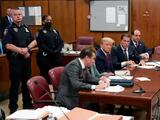Bye, bye Bolton, welcome back diplomacy

It was a whirlwind week in Washington for developments in Latin America policy.
The Mexican foreign minister reported significantly lowered flows of Central American migrants passing through his country to our shared border, while still rejecting a safe third country asylum agreement the US has been pushing.
Honduras continued to play footsie as to whether it might sign such an agreement specifically relating to Nicaraguan and Cuban migrants passing through its less than safe territory.
And President Trump fired National Security Advisor John Bolton, while over at the State Department, they named a new top diplomat for the region, veteran career official Ambassador Mike Kozak. Finally, in Houston, the top Democratic presidential candidates debated in depth about American immigration policy … and Venezuelan tyrant, or dictator depending on who was answering, Nicolas Maduro.
Not directly related, these developments nonetheless reinforce an often forgotten truth: the United States is so inextricably linked to the region that when it coughs, we in the States can catch a border or a foreign policy crisis cold.
Más sobre Opinion
John Bolton’s surprise-no-surprise dismissal by tweet was seen by most as due to his disdain for diplomatic negotiations and alliance building and his hawkish preference for the use of coercive power in Afghanistan, Iran, North Korea, etc. Yet when Senator Marco Rubio tweeted on Thursday that he had just reaffirmed with Trump that Venezuela policy would remain sufficiently aggressive, something Bolton had been credited with, the President retweeted, commenting “ In fact, my views on Venezuela, and especially Cuba, were far stronger than those of John Bolton. He was holding me back!”
Regardless of who is tougher on tyrants, maintaining focus on the humanitarian and legitimate criminal and regional instability menace that Venezuela does represent, is necessary. The appointment of Ambassador Kozak, formerly the deputy to the Venezuela Envoy Elliot Abrams, is good news in that regard. He knows the region and has been involved in advancing a bipartisan agenda grounded in the promotion of democracy and human rights since the 1980s. He understands well that diplomats have to talk with bad actors to solve crises.
Thursday’s Democratic primary debates also focused on US-Latin American issues, mostly due to the inclusion of Univision anchor Jorge Ramos as one of the moderators. He peppered his questions with a few words of Spanish, the second-most widely spoken language in the United States, which prompted several candidates to echo the sentiment that “ this is our (i.e. Latinos) country, too.”
Both Senator Warren and Joe Biden spoke solidly about the imperative to invest in Central America, versus cutting aid as President Trump has done. Biden took appropriate credit for his leadership of the Alliance for Prosperity, which sought to support Central American business, civil society and reliable government partners in the Northern Triangle to mitigate the push factors of irregular migration to the United States. While he attacked Biden for his faltering memory elsewhere, Julian Castro also endorsed the need to invest in Central America. A return to this type of foreign assistance program policy is manifestly in US interests. It won’t happen under Trump, but it was reassuring to see general agreement among the Democrats should one of them win the 2020 election.
In an astonishing moment, Bernie Sanders refused to call Nicolas Maduro a dictator, demurring instead to use the term tyrant. Quickly pivoting away from what he would do on Venezuela, he then went on to affirm that his vision of democratic socialism has nothing to do with Venezuela, Cuba or Nicaragua. Along with a Republican PAC ad that ran during the debate that compared Congresswoman Alexandria Ocasio-Cortez’ brand of socialism to the Cambodian genocide, Sanders’ lauding of Scandinavia’s social welfare will only encourage the President’s simplistic – yet effective for his base - demonization of all Democrats as would be Maduros, Ortegas or Havana apologists.
US elections rarely have foreign policy concerns at their core, especially if they do not involve the deployment of troops. So the amount of time spent on immigration and Latin America, specifically Venezuela, was notable and healthy. Despite Trump’s efforts to downgrade our ties to the region through a punitive, tariff-based trade policy, slashing aid budgets and building a Wall, the ineluctable process of integration will continue. And while there will be no major changes in US policy vis-à-vis the region, with a skilled hand leading regional diplomacy at the State Department, perhaps a bit more order, coordination and predictability will characterize our engagement in the near term.


